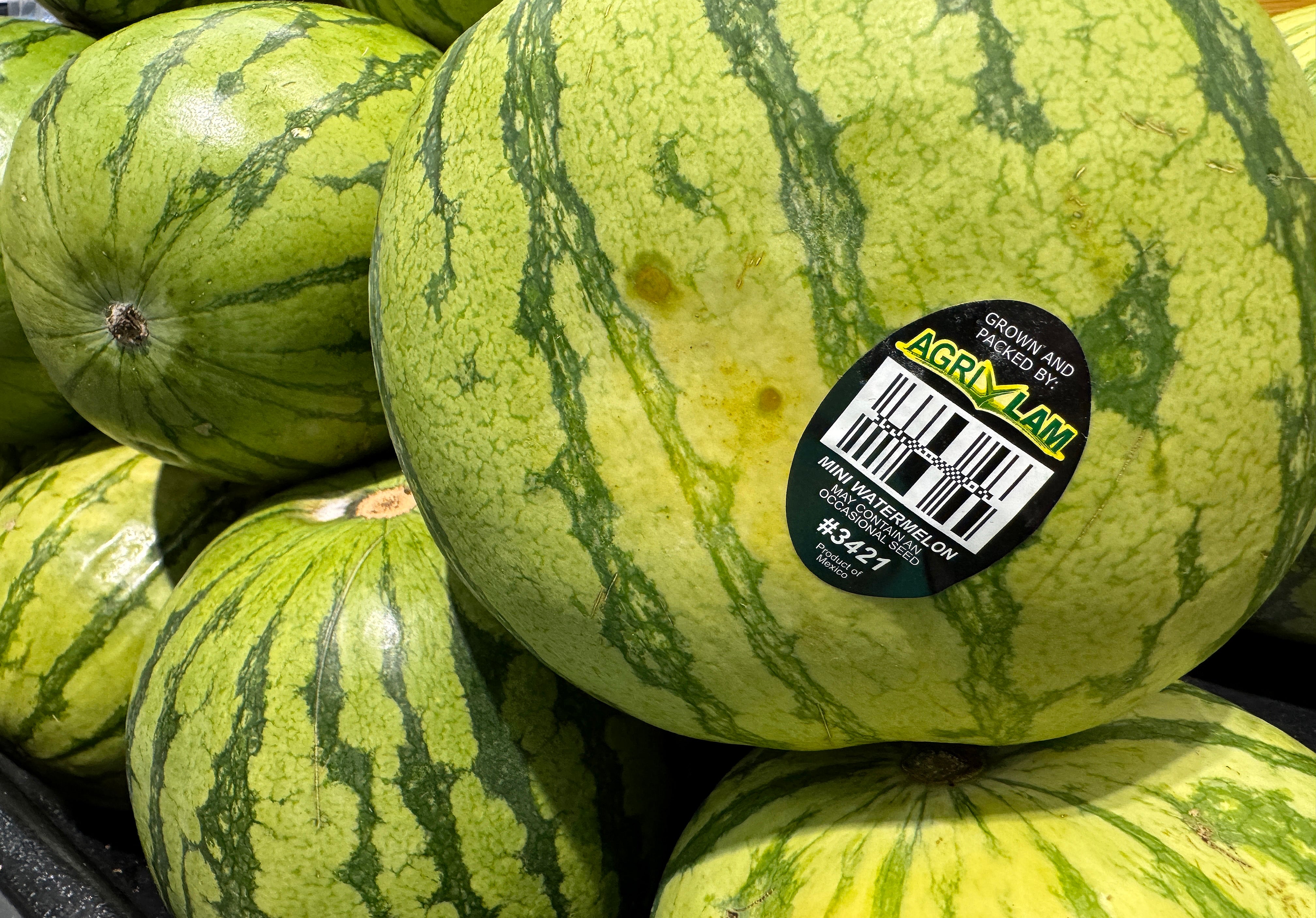Your support helps us to tell the story
From reproductive rights to climate change to Big Tech, The Independent is on the ground when the story is developing. Whether it’s investigating the financials of Elon Musk’s pro-Trump PAC or producing our latest documentary, ‘The A Word’, which shines a light on the American women fighting for reproductive rights, we know how important it is to parse out the facts from the messaging.
At such a critical moment in US history, we need reporters on the ground. Your donation allows us to keep sending journalists to speak to both sides of the story.
The Independent is trusted by Americans across the entire political spectrum. And unlike many other quality news outlets, we choose not to lock Americans out of our reporting and analysis with paywalls. We believe quality journalism should be available to everyone, paid for by those who can afford it.
Your support makes all the difference.Read more
Love a nice piece of refreshing watermelon to cool down those hot summer days?
You’re not alone.
But, eating too much of anything is typically a bad thing — and watermelon is no exception.
“You can safely eat two servings of watermelon each day, but it’s never a good idea to go on a diet that features only one type of food,” registered dietitian Lara Whitson previously told the Cleveland Clinic. “A watermelon cleanse is a fad, like any other, and it will deprive your body of other nutrients it needs to function properly.”
While watermelon may be incredibly hydrating and nutritious, consuming it may also cause digestive problems, the non-profit medical center warns.

open image in gallery
Eating a piece watermelon may provide relief on a sweltering summer day. But, experts say less is more (AFP/Getty)
It’s considered to be a high “FODMAP” food, which indicates there are certain sugars that may cause intestinal stress. Johns Hopkins Medicine notes that diets low in FODMAP – a term that references hard-to-digest carbohydrates – are designed to help people who suffer from irritable bowel syndrome.
The Cleveland Clinic also warns that people who are prone to migraine headaches may want to abstain. This is because watermelon contains a high level of tyramine, a naturally-occurring amino acid that could trigger them.
Also found in artisan cheeses, processed meats, fermented foods, and alcohol, taking certain medications to treat depression while eating food high in tyramine has also been tied to dangerous spikes in blood pressure, according to the Mayo Clinic.
In other rare cases, watermelon may cause a severe reaction for people with allergies to grasses or ragweed, according the VeryWellHealth.
“People with allergies to grasses may have a reaction to peaches, celery, tomatoes, melons (cantaloupe, watermelon and honeydew) and oranges. Those with reactions to ragweed might have symptoms when eating foods such as banana, cucumber, melon, and zucchini,” the American Academy of Allergy Asthma and Immunology warns.

open image in gallery
Watermelon is packed with great nutrients. It’s also high in sugar (Getty)
But, for many, the problem lies with just how good watermelon tastes.
This is because of its natural sugar content. It’s packed with around 17 grams, which is more than antioxidant-rich berries but much less than pineapple.
Still the Cleveland Clinic advises that people with diabetes moderate how much watermelon they eat because of it.
“I guess if all you ate every day was watermelon, that would be a problem,” registered dietician nutritionist Jessica Plowman told The Healthy. She noted that while it may be “really hard to OD on,” it contains quite a bit of sugar.
“Eating it in a meal with protein and fat will reduce the effect on blood sugar,” Plowman advised.
